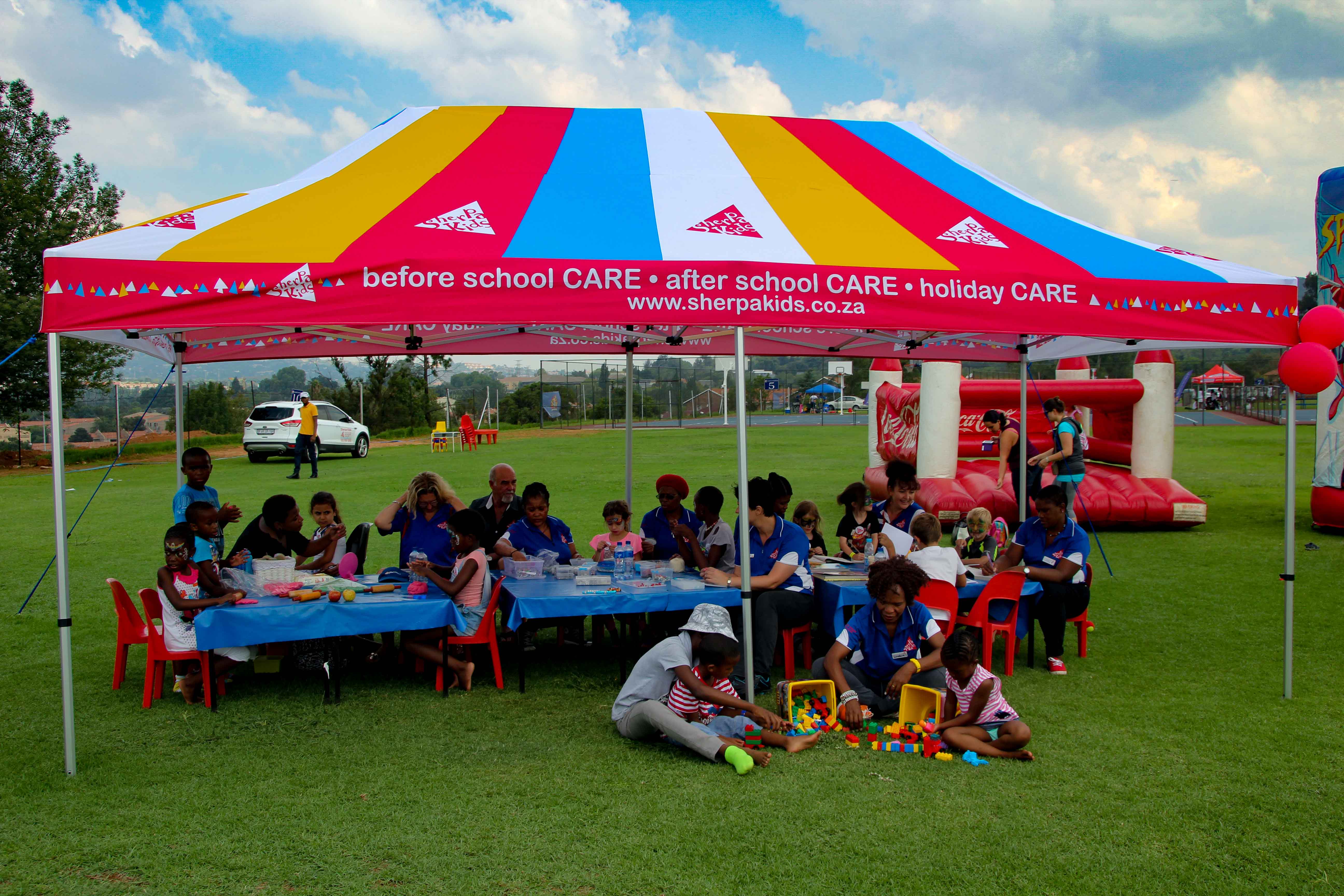REACH Higher
We work and engage with all involved to ensure continuous learning that will bring about emotional and beneficial outcomes to all. Identify each individual’s needs and goals and challenge them everyday.
We work and engage with all involved to ensure continuous learning that will bring about emotional and beneficial outcomes to all. Identify each individual’s needs and goals and challenge them everyday.
Via collaboration Sherpa Kids create and provide, clever, customised, engaging, fun, safe and a secure environment for the care of school-aged children.
Let experts take quality of your business to new heights to build a business that will change your lifestyle with an award winning team at the summit.
Read More

Sherpa Kids Joburg East @ Saheti School, Linksfield, Johannesburg. ....... Kiddies Zone during Sevens Rugby and Netball Festival held on Sat 27 Feb 2016
Face Painting - Beading - Yoga - Nutty Scientist - Blocks and Puzzles. Photo Courtesy : Harry Karpathakis (Official Show Photographer)
Schools include SPARK Schools (Ferndale, Cresta, Maboneng, Rynfield, Centurion, Midrand), Pioneer Acadamies (Ormonde, Midrand), Emmarentia Primary School, Le Bone Rustenburg, Saheti School Johannesburg, St Katharine's Parktown,St David's Marist Inanda, The Mountain Cambridge School Hartebeespoort, St Henry's Marist Brothers Durban, Victory Christian Academy Durban North, Pretoria Chinese School, Nobel Palms Private School Rustenburg, Kyalami Preparatory School, Kyalami Nursery School, St Stithians Girls Prep Johannesburg. Also Hillside Methodist Church Edenvale, Vantage Point Church North West Province.
In the same way as mountaineers use skills and knowledge of the Sherpa people to guide them safely to their summit, you can reply on Sherpa Kids' expertise and hard work to guide your school community in everything that goes with managing, planning and running an outstanding Before School, After School and Holiday Care service.
A solid history founded on a high level of know-how, integrity and expertise ensures that professionalism underpins our brand, our systems and reflected in our people.
Sherpa Kids has a genuine passion for delivering a quality structured safe service built on a solid business platform to provide a creative, engaging, fun-filled, safe and secure environment for the school community. We pride ourselves on adhering to International Best Practice and standards, evident in the accredited status of Sherpa Kids' operations in New Zealand, Australia and United Kingdom.